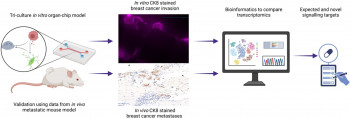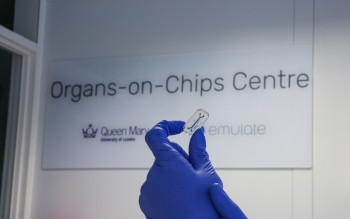News
QMUL team qualify an organ-chip model of breast cancer metastasis using a multi-omics approach
24 November 2025
Researchers at Queen Mary University of London have developed and rigorously qualified a new organ-on-a-chip model that replicates the early stages of breast cancer bone metastasis, offering a promising alternative to animal studies. The microfluidic system brings together osteocytes, osteoclasts and breast cancer cells in a dynamic tri-culture, but its real advance lies in the comprehensive multi-omics validation undertaken by the team. By integrating RNA sequencing, cytokine profiling and high-content imaging, the researchers demonstrated that the chip faithfully reproduces key molecular and cellular signatures seen in established in vivo animal models. This robust, data-driven qualification provides a new benchmark for evidence-based confidence in organ-chip technologies, positioning the platform as a scalable tool for mechanistic studies and future drug screening. The study underscores the Centre for Predictive in vitro Models' commitment to developing human-relevant, well-validated alternatives to animal research.
This work was funded by an EPSRC-CRUK multidisciplinary award and was a collaboration between bioengineers at the Centre for Bioengineering and the Centre for Predictive in vitro Models, and biologists at Barts Cancer Institute.
Email: s.verbruggen@qmul.ac.uk
Link: https://www.sciencedirect.com/science/article/pii/S174270612...
Updated by: Stefaan Verbruggen




